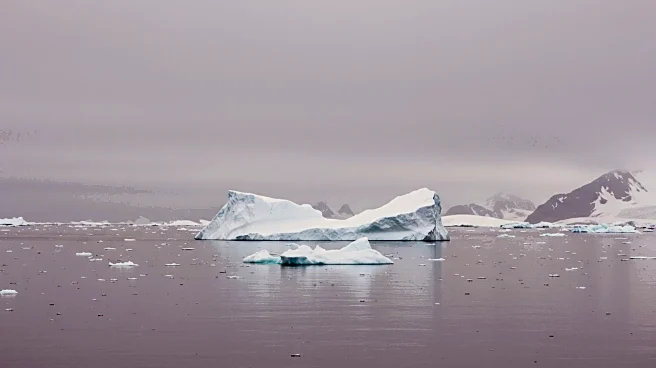What's Happening?
Researchers have observed a dramatic slowdown in the melting of Arctic sea ice over the past 20 years, with no significant decline in its extent since 2005. This finding is unexpected given the continued rise in carbon emissions and global temperatures. The slowdown is attributed to natural variations in ocean currents that limit ice melting, providing a temporary reprieve. Despite this, the overall trend of sea ice loss remains concerning, with September ice area halving since 1979. Scientists warn that melting is likely to resume at an accelerated rate within the next five to ten years.
Why It's Important?
The slowdown in Arctic sea ice melting offers a brief respite in the ongoing climate crisis, but it does not negate the urgent need for climate action. The temporary stabilization highlights the complex interplay of natural and human-induced factors affecting climate patterns. The Arctic remains vulnerable to future ice-free conditions, which would have significant ecological and climatic impacts. Understanding these natural variations can inform climate models and policy decisions aimed at mitigating global warming.
What's Next?
Scientists anticipate that the slowdown will end, leading to accelerated sea ice loss. This could prompt renewed focus on climate mitigation strategies and international cooperation to reduce carbon emissions. The findings may influence climate policy discussions, emphasizing the need for adaptive measures to address both short-term fluctuations and long-term trends in climate change.










